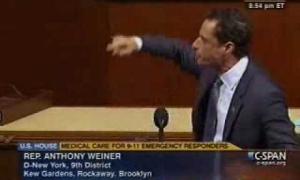The Speechwriter’s Life: Former LBJ scribe Harry Middleton
August 23, 2015
The two secrets to writing for a president—or anybody else.
Harry Middleton, a former speechwriter for President Lyndon B. Johnson, has two pieces of wise advice for fellow scribes.
First: “Be sure you know what your speaker wants to say—don’t make the speech your own, make it his.”
Second, don’t pass up an opportunity to see the boss speak in public.
“I don’t remember writing a speech for the President that I did not later watch him deliver. And I learned from watching him what words he would stumble over, and what words to avoid—little things, but important.”
“I was not the President’s only speechwriter, nor would I want to be identified as the most prominent,” Middleton shared during a conversation with Vital Speeches. He later recited the names and described the talents of colleagues such as Harry McPherson, Robert Hardesty, John Roche and Peter Benchley.
Middleton was in his mid-40s when he joined Johnson’s speechwriting staff. A journalist-turned-freelance writer, he was a published author and had previously written speeches for individuals working in private industry and the Pentagon.
“So I was aware of what writing a speech was all about. Any work that requires writing is helpful in becoming a speechwriter. But what was also helpful [in the White House] was having an understanding of Johnson and who he was, and what he stood for. The fact that I agreed with what he was trying to do—that was probably the most helpful thing of all,” Middleton said.
Among the speeches that stick out in Middleton’s memory “are the ones where President Johnson himself improved the draft.”
Middleton drafted the 1968 speech Johnson would deliver while signing the Civil Rights Act into law. Middleton’s text included a line about how “[t]he proudest moments of my Presidency have been times such as this when I have signed into law the promises of a century.”
Recalled Middleton: “That line received some objections from other members of the staff, who said that it should perhaps read ‘some of the proudest moments’ instead. I said: ‘Why don’t we let the President decide?’”
The President not only preferred Middleton’s wording, but amplified it. The final version of the line as delivered was:
I do not exaggerate when I say that the proudest moments of my Presidency have been times such as this when I have signed into law the promises of a century.
On the matter of humor in speeches, Middleton remembered trying to incorporate into his drafts occasional “Hill Country” stories from the part of Texas where Johnson grew up.
“I was always very careful with Hill Country expressions. If I put in too many, the President would say ‘look, this doesn’t sound presidential.’ He was leery about too much Hill Country locution, but I thought it was a good way to enliven a speech,” Middleton said.
One such story that Johnson did enjoy retelling, and which found its way into some of his speeches, concerned a grizzled old-timer watching a train being prepared to run along the track and saying “they will never get it started.” And after the train started, the old timer said: “They will never get it stopped.”
After the White House, Middleton assisted Johnson with his memoirs. Middleton also served for about three decades as Director of the Lyndon Baines Johnson Presidential Library. He also wrote speeches for Lady Bird Johnson, as well as a biography of the First Lady.
“It was a unique experience for me to write for President Johnson, and is something that I remember with great pleasure,” Middleton said.
Note: You can watch some oral history talks by Harry Middleton here and here. Starting at the 16:30 mark in the second clip, Middleton relates a particularly interesting and humorous speechwriting anecdote involving himself, President Johnson and General William Westmoreland.




